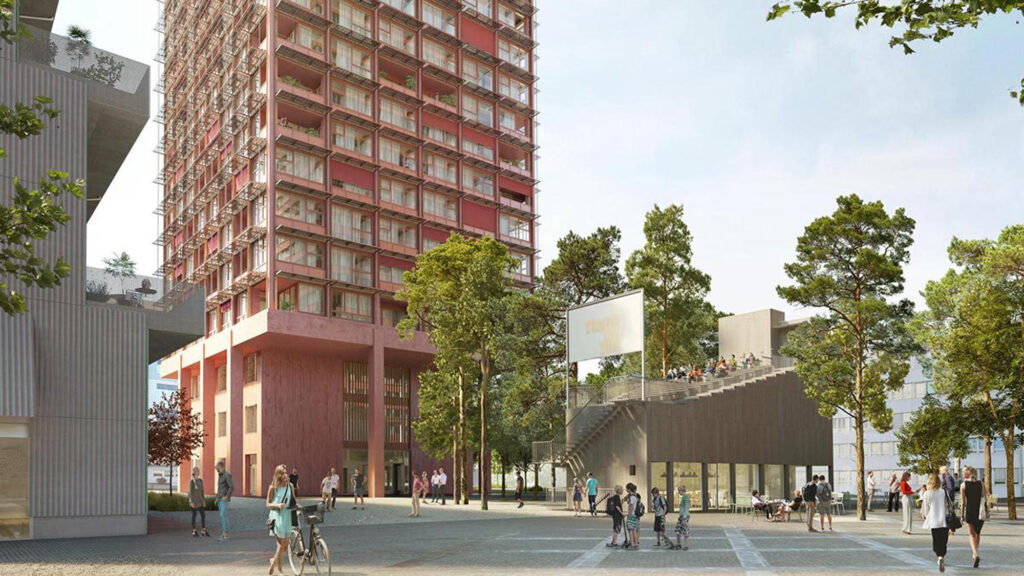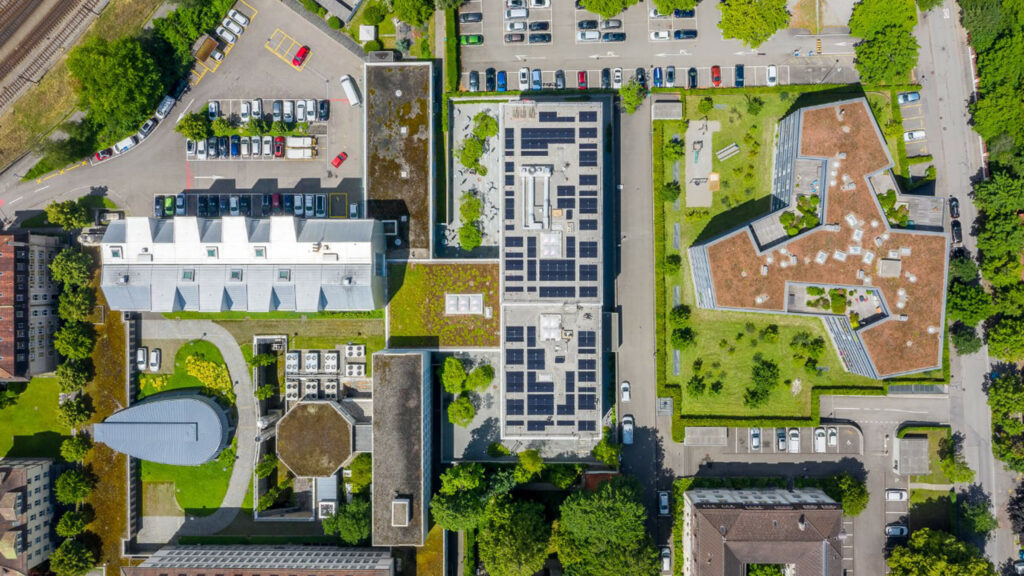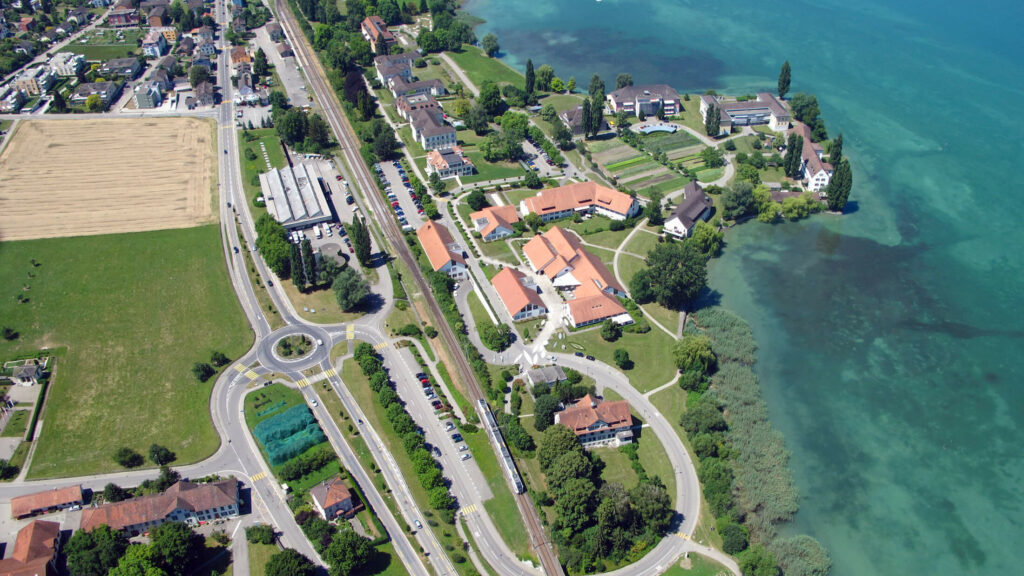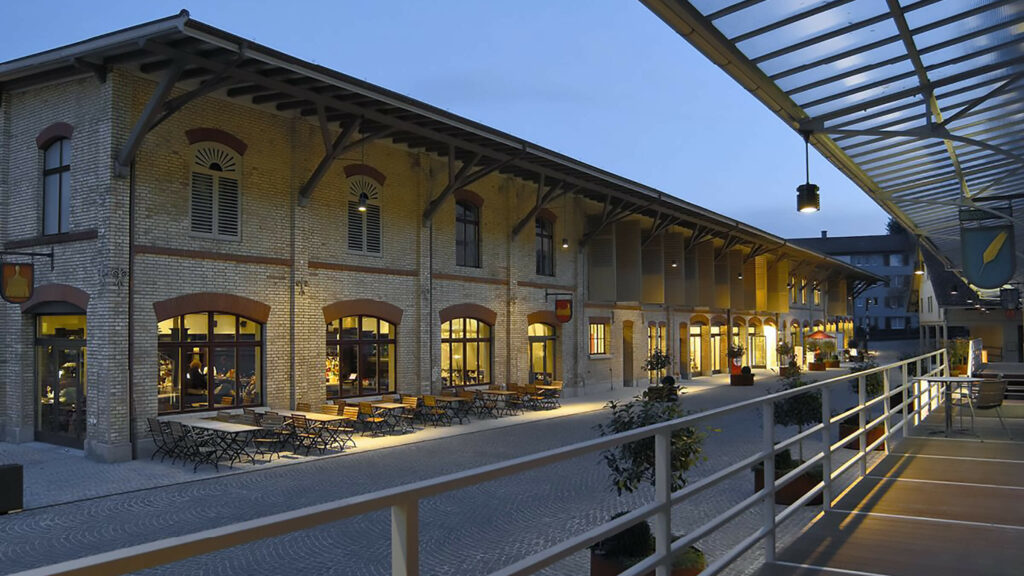The project faced a number of challenges right from the start: all work was carried out during full operation. And of course, the construction work was supposed to have as little effect on Swiss Re's employees as possible. This placed special demands on construction and logistics. In addition, most of the buildings were listed monuments, which led to corresponding construction restrictions. The sheer size of the plant required special measures: each running metre of the suction line and return line weighs many hundreds of kilograms. Fittings weighing 200 kilograms and more are also the norm. Lifting platforms were needed for the installation. In order to weld pipes with such a weight on site, special equipment and special expertise was needed. Due to the required amount of water, lake water had to be sucked in from the middle of Lake Zurich at a depth of 14m. A correspondingly large number of metres of pipes had to be laid.
Energy Supply for the Swiss Re Site
Zurich
Swiss Re in Zurich uses its lake facility to offer its employees the greatest possible comfort and at the same time the highest ecological standards.
The size of the plant and conversion during ongoing operation pose special challenges.
Challenges
Security of supply has top priority. In the process, valuable energy and environmental resources are to be used.
Solutions
Three energy centres supply the buildings with heating and cooling.
For this purpose, water is sucked in from the lake, filtered and
subsequently distributed. By using lake water, the efficiency of the heat pumps and refrigeration machines could be significantly increased. For more than half of the year, lake water can be used directly for cooling. In addition, the area is supplied with a thermal solar system that provides both hot water and heating. To save valuable drinking water, grey water, i.e. pure lake water, is used for flushing toilets, for example. To ensure the security of the supply, the pumps are double-duty and the power supply is protected by emergency power. In addition, the solar system also contributes to the smooth operation of the plant. Two high-quality process controls ensure proper regulation of the lake water supply. Each control unit takes up one half of the system technology. If one of the controls fails, seawater can continue to be pumped to the various consumers.



